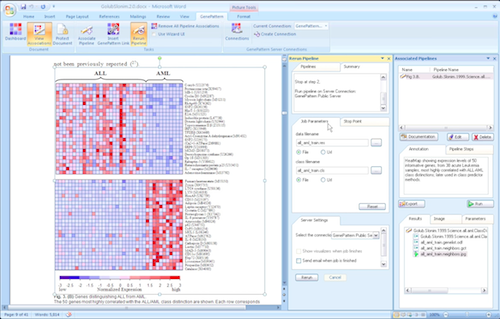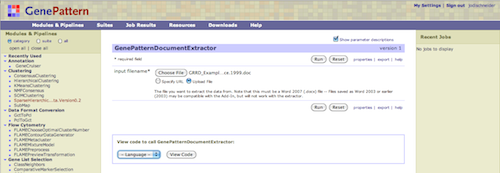What if you could rerun computational experiments from within a scientific paper?
The GenePattern add-on for Word for Windows integrates reusable genomic experiment pipelines into Microsoft Word. Readers can rerun the original or modified experiments from within the document by connecting to a GenePattern server.
I don’t run Windows, so I took this screenshot from a video produced at the Broad Institute of MIT and Harvard, where GenePattern is developed.
Readers without Word for Windows can also access the experimental pipelines by exporting them from the document: just run a GenePatternDocumentExtractor command from a GenePattern server. The GenePattern public server was very easy to access and start using. Here’s what the GenePatternDocumentExtractor command looks like:
Unfortunately the jobs I ran didn’t extract any pipelines from the Institute’s sample DOC. I’ve sent in an inquiry (either I’m doing something wrong or there’s a bug, either way it’s useful). I was very impressed that I could make my jobs public, then refer to them by URL in my email, to make clear what exactly I did.
The GenePattern add-on for Word is another find from the beyondthepdf list. Its development was funded by Microsoft. See also Accessible Reproducible Research by Jill P. Mesirov (Science, 327:415, 2010). doi:10.1126/science.1179653, which describes the underlying philosophy: have a Reproducible Research System (RRS) made up of an environment for doing computational work (the Reproducible Research Environment or RRE) and an authoring environment (the Reproducible Research Publisher or RRP) which links back to the research system.

